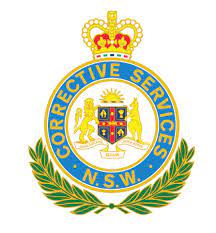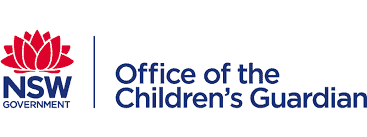There’s lot of talk about how a sense of purpose is so important for people engagement…but how do you build a sense of purpose in what seems like a lost cause?
In this article, I’m sharing what I do to keep my sense of purpose strong and give leaders at all levels inspiration and practical tips and tools to help find their own sense of purpose as well as the people they lead.
I’ve been running my business, Southern Cross Coaching & Development for over 17 years now (it was our birthday on 1st November! 🎂🍾🥂🥳🎉). My personal and the company mission is to Make the world a Better Place through Better, Neuroscience-based Leadership. That sense of purpose has kept me and the company going, and here we still are 17 years on.
However, being honest with you, in those 17 years there have been many occasions where I’ve felt like giving up, and that it’s all TFD*.
Several times over the years I’ve been very, very close to jacking it all in and applying for a ‘nice secure corporate or government job’!
However, when my sense of purpose has sometimes been shaken to the core, I’ve always managed to get back on track. As there’s so much talk about purpose (or lack of it!) at the moment, I thought I’d share some of the practical things I’ve done to keep myself going over these 17 years to keep my sense of purpose and the business alive.
The first 2 are my most critical purpose drivers, but no. 3 onwards are also extremely important in keeping my purpose alive and on track:
- I think back to all the really bad leaders I’ve had, and how miserable they made my life and the people around me’s lives, and realise I want to stop that happening to others! That drives deep connection to my mission and purpose!
- I think of the great leaders I’ve had (particular thanks to Brian Gregson, Sue Brackenberry, Mike Goode and Clive Pugh) and what an incredible difference they made to me and the people around me, and I realise that helping make more of those types of leaders is what I’m here on this planet for and also drives deep connection to my mission and purpose.
- I looked ahead to what things would be like in 1 year in the job. My thinking is:
- I would likely lose my autonomy to make my own decisions and very likely have to ‘tow the party line’, particularly with a boss I didn’t much respect. I’ve always found it hard to keep my mouth shut, so the thought of that and how unhappy I would likely be is a good incentive not to go down the ‘getting a job’ route and is a key factor in why I persist in running my own business despite the challenges that get thrown up i.e. Covid, Global Financial Crisis, and more!
- I’d want to do things differently and try new things, which is what I get to do in my business, and I’d likely not get to do that in the same way I do now
- I reminded myself that realistically there’s still no real security as I could be retrenched in a restructure or transferred to another area, etc, so what am I really gaining?
- I think back to the time I had a psychopathic boss, sit in how that felt and how unhappy I was and how unsafe I felt, and realise that could easily be a reality in any job (I’ve seen enough psychopaths/narcissists/Machiavellians in various places over my years of being in business!), and that’s a great reason not to leave my business and keep going!
- I think of how I would feel if I don’t have autonomy and I wasn’t in control of my own destiny and gives me great strength to keep going
- There’s always the thought that success may just be around the corner, and if I give up now I’ll miss that success, That has proven to actually be the case several times…post-Covid is a good example, when I and the company were at rock bottom, but persevering through the darkness we climbed out of the pit and are in an even better position now than we were pre-Covid.
- I have a couple of nasty autoimmune diseases that mean when I do have the option I can be flexible in when I work i.e. start late morning, so I rest and work into the evening when I feel better
- I can have the flexibility and choice to be able to spend time with my kids and partner when I need to – that would likely be SO much harder if I was employed.
- Overall, there are way more benefits and personal rewards for me in running my own business compared with getting a job. And I’m super-grateful for those. All that keeps me on track and keeps my sense of purpose alive, even in the most difficult circumstances I’ve been through.
From a very simplified neuroscience point of view, our brains and resulting real-world practical behaviours work on a reward/toward state vs. threat/away state principle. We do things because they trigger some sort of reward/toward neurochemical state that makes us feel good, so we do more of it. Or we act from a threat/away state perspective where we fight, run-away or hide (fight/ flight/ freeze) under threat – sometimes at great personal cost. We have a loss-aversion principle where we think the loss is a threat, so we fight, run away or hide to avoid it.
As we have FIVE times as much brain circuitry dedicated to threat detection and avoidance as we do reward/toward behaviour, you can see how powerful and important this is.
Interestingly, for many of us avoidance of the loss is also often a very powerful reward, which can be channelled towards driving our sense of purpose. This works for me, as you can see from the drivers that keep me going. However, we have to be aware of and wary of this, as if our perception of the threat is not the reality, we can drive ourselves into the ground for nothing.
I know myself and my drivers well enough to know that for me my happiness is linked to not experiencing certain conditions as much as it is to experiencing other conditions – like autonomy and freedom of choice, and particularly feeling like I’m truly making a difference in the world.
Hence my and my company’s mission: “Make the Word a Better Place through Better, Neuroscience-based Leadership”.
What drives your sense of purpose? What are the things you need to have, and also need to avoid, to keep your sense of purpose alive?
And how can you make sure you get those – and be grateful for them – in your job or business?
^ Insert name of any company who’s essential purpose is to make as much profit as possible for shareholders/ for the hell of it, etc!
*Too F#@*!^g Difficult
























































